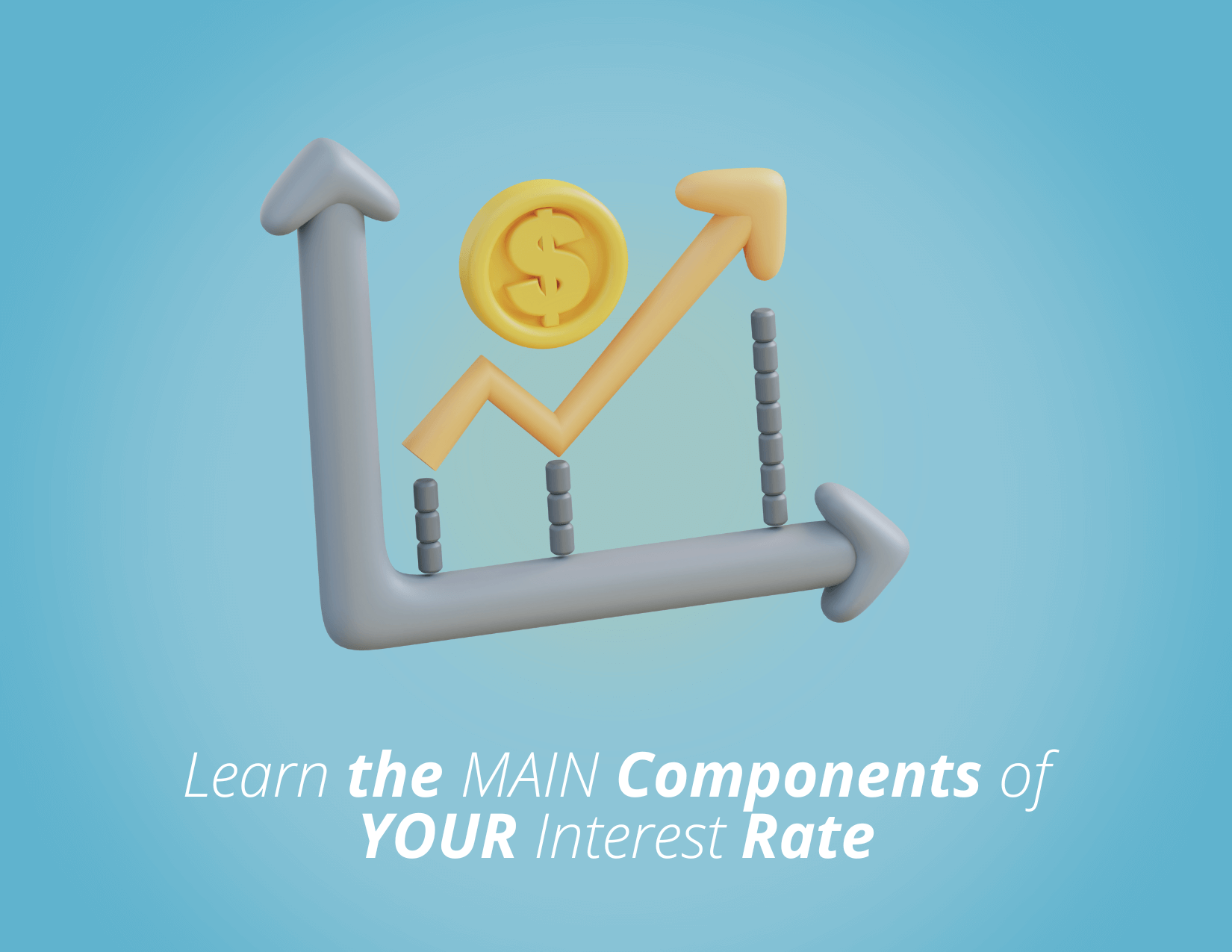Interest on a mortgage is not just a fee for borrowing money; it reflects the cost of using the lender's funds over time. The interest rate on your mortgage determines how much you will need to pay back to the lender above the borrowed amount. Even a small difference in your interest rate can significantly affect your monthly payments and the total cost of your mortgage. That's why it is vital to understand how rates are set and what you can do to secure the best possible rate for your specific situation.
Key Components of Mortgage Interest Rates
When you are shopping for a mortgage, you will notice that interest rates can vary. Several key components of the rate you should be aware of:
Prime Rate
The prime rate in Canada is a crucial benchmark interest rate that banks use to price loans for their most creditworthy customers. It is closely tied to the policy interest rate set by the Bank of Canada, which uses this rate as a tool for monetary policy to influence the country's economic conditions. When the Bank of Canada changes its policy rate to manage economic inflation or stimulate economic growth, Canadian banks usually adjust their prime rates accordingly.
For borrowers with a variable-rate mortgage, the interest rate they pay is directly linked to the prime rate. This means when the prime rate changes, the interest rate on their mortgage adjusts in parallel. If the prime rate goes up, borrowers will see an increase in their mortgage interest rates and, thus, their monthly payments. Conversely, if the prime rate falls, their mortgage interest rates and monthly payments will decrease. This direct linkage makes understanding the prime rate critical for anyone with or considering a variable-rate mortgage.
Mortgage Term Length:
The mortgage term length is the period over which the conditions of your mortgage are fixed. In Canada, mortgage terms can range from a few months to 5 years or more, with the option to renew at the end of each term. Generally, longer-term mortgages offer more stability because your interest rate is locked, if you opt for a fixed rate, but they might come with slightly higher rates as lenders take on more risk over an extended period.
However, the relationship between term length and interest rates is not absolute. Market conditions, lender policies, and economic forecasts also play a significant role. Some borrowers might opt for shorter terms to take advantage in anticipation of rates dropping further, allowing them to renegotiate sooner under potentially more favourable conditions.
Discounted Rates:
Lenders often advertise a posted rate, which is the standard interest rate they offer on mortgages. However, it is not uncommon for lenders to provide discounted rates to eligible borrowers. These discounted rates are lower than the posted rates and can result in significant savings over the term of your mortgage.
Securing a discounted rate often involves negotiation with your lender or shopping around and comparing offers from different lenders. Factors that can influence your eligibility for a discounted rate include your credit score, the size of your down payment, your employment status, and your existing relationship with the lender. It is always worth asking about potential discounts or working with a mortgage broker who can negotiate on your behalf to secure the best possible rate.
Prime Rate
The prime rate in Canada is a crucial benchmark interest rate that banks use to price loans for their most creditworthy customers. It is closely tied to the policy interest rate set by the Bank of Canada, which uses this rate as a tool for monetary policy to influence the country's economic conditions. When the Bank of Canada changes its policy rate to manage economic inflation or stimulate economic growth, Canadian banks usually adjust their prime rates accordingly.
For borrowers with a variable-rate mortgage, the interest rate they pay is directly linked to the prime rate. This means when the prime rate changes, the interest rate on their mortgage adjusts in parallel. If the prime rate goes up, borrowers will see an increase in their mortgage interest rates and, thus, their monthly payments. Conversely, if the prime rate falls, their mortgage interest rates and monthly payments will decrease. This direct linkage makes understanding the prime rate critical for anyone with or considering a variable-rate mortgage.
Mortgage Term Length:
The mortgage term length is the period over which the conditions of your mortgage are fixed. In Canada, mortgage terms can range from a few months to 5 years or more, with the option to renew at the end of each term. Generally, longer-term mortgages offer more stability because your interest rate is locked, if you opt for a fixed rate, but they might come with slightly higher rates as lenders take on more risk over an extended period.
However, the relationship between term length and interest rates is not absolute. Market conditions, lender policies, and economic forecasts also play a significant role. Some borrowers might opt for shorter terms to take advantage in anticipation of rates dropping further, allowing them to renegotiate sooner under potentially more favourable conditions.
Discounted Rates:
Lenders often advertise a posted rate, which is the standard interest rate they offer on mortgages. However, it is not uncommon for lenders to provide discounted rates to eligible borrowers. These discounted rates are lower than the posted rates and can result in significant savings over the term of your mortgage.
Securing a discounted rate often involves negotiation with your lender or shopping around and comparing offers from different lenders. Factors that can influence your eligibility for a discounted rate include your credit score, the size of your down payment, your employment status, and your existing relationship with the lender. It is always worth asking about potential discounts or working with a mortgage broker who can negotiate on your behalf to secure the best possible rate.
Your mortgage interest rate in Canada is influenced by a variety of factors, including the length of your mortgage term, the prime rate, your credit score, and more. This rate affects how much you pay monthly and over the life of your mortgage. Understanding interest rates can help you make informed decisions, potentially saving you a significant amount of money and making your home purchase more affordable.
IK Financial Mortgage Team operates on behalf of Mortgage Edge. Lic#10680





